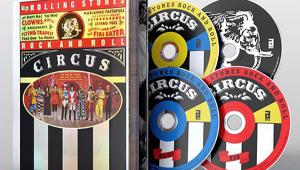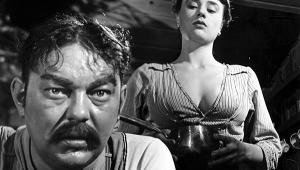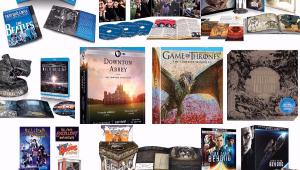Andrei Rublev

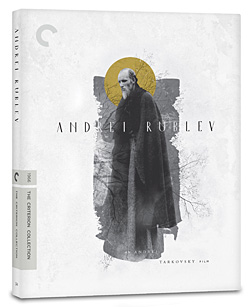 Criterion’s set includes two versions of the film. A new 2K restoration of the 183-minute cut has all dirt, warps, and other damages digitally removed, but enough grain left behind to maintain Rublev’s filmic presentation without sacrificing resolution. Magnificent in-depth compositions, often resembling Bruegel paintings, fill vast landscapes with figures, farms, and forests, all of it distinct, sharp, and highly detailed. Bright white snow contrasts with the inky black of monks’ cloaks, and there’s a beautiful range of gray tones throughout the film. At the finish, Rublev’s painted icons are strikingly displayed with their rich but restrained color. Tarkovsky completists will appreciate the original 205-minute version of the film (initially suppressed by Soviet authorities) on Disc 2. This transfer has less contrast and looks softer and muddier. Also, the extra footage doesn’t improve on the other, tighter cut that Tarkovsky preferred.
Criterion’s set includes two versions of the film. A new 2K restoration of the 183-minute cut has all dirt, warps, and other damages digitally removed, but enough grain left behind to maintain Rublev’s filmic presentation without sacrificing resolution. Magnificent in-depth compositions, often resembling Bruegel paintings, fill vast landscapes with figures, farms, and forests, all of it distinct, sharp, and highly detailed. Bright white snow contrasts with the inky black of monks’ cloaks, and there’s a beautiful range of gray tones throughout the film. At the finish, Rublev’s painted icons are strikingly displayed with their rich but restrained color. Tarkovsky completists will appreciate the original 205-minute version of the film (initially suppressed by Soviet authorities) on Disc 2. This transfer has less contrast and looks softer and muddier. Also, the extra footage doesn’t improve on the other, tighter cut that Tarkovsky preferred.
The mono soundtrack of the shorter cut features a mysterious, surging score of ancient instruments and a choir that is clear and full. Effects like streams, wind, and endless rain all sound distinct and convincing. The audio on the longer version of the film isn’t as well-defined.
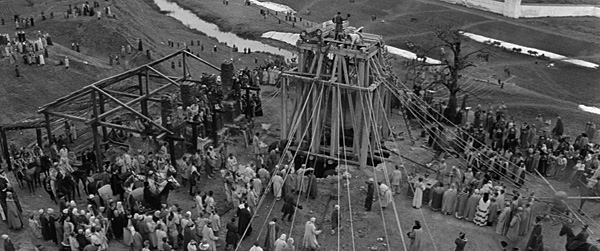
Two fascinating documentaries are included on Criterion’s disc. The first is archival and features footage of Tarkovsky, with his filmmaker contemporaries providing voiceover contemplations of his work. The second one is recent and has interviews with actor Nikolai Burlyaev and cinematographer Vadim Yusov on the production and the fate of the film. A select-scene commentary by film scholar Vlada Petric that analyzes the film’s cinematic language is decent, if stodgily academic, whereas fellow scholar Robert Bird’s interview provides an insightful, engaging history of Rublev, Tarkovsky, and of the film itself. Two more gems: a reading of the director’s writings that’s illustrated by film clips, and a colorful student film, The Steamroller and the Violin, that displays Tarkovsky’s budding genius.
BLU-RAY
STUDIO: Criterion, 1966
ASPECT RATIO: 2.35:1
AUDIO FORMAT: LPCM Mono
LENGTH: 183 & 205 mins.
DIRECTOR: Andrei Tarkovsky
STARRING: Anatoliy Solonitsyn, Ivan Lapikov, Nikolay Grinko, Nikolay Sergeev






